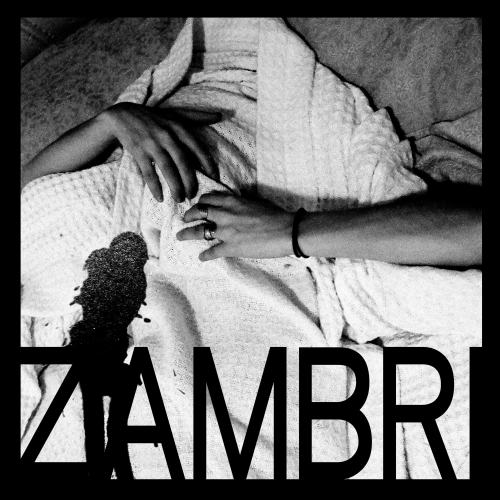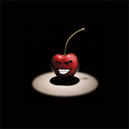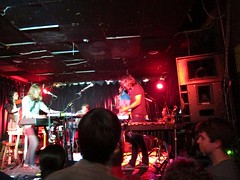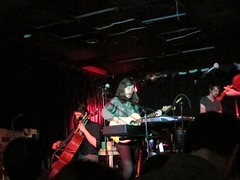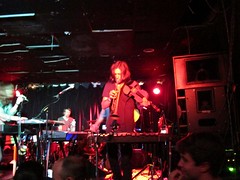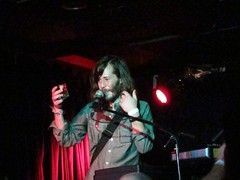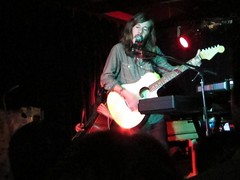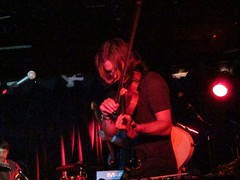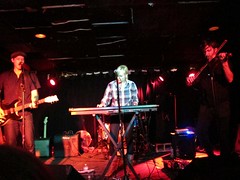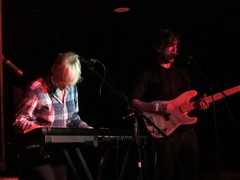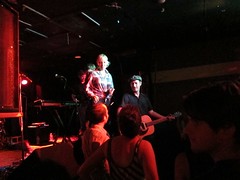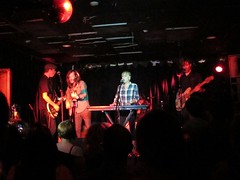Roots come together from opposite worlds
Sometimes, you can travel to the ends of the earth and still find yourself back at home. Esau Mwamwaya was an experienced singer when he left his home in Malawi and moved to London in 1999. A serendipitous meeting led to an unlikely partnership with the production team of Radioclit to form The Very Best. Their electronic production complemented his soulful singing to create an intriguing mixtape that featured some surprising contributions from acts like Santigold and samples from a variety of pop and indie bands.
Fast forward a half decade and The Very Best was centered on Mwamwaya and DJ Johan Hugo. The pair had temporarily relocated back to Lilongwe, Malawi in 2013. They left the capital for village life in M'dala Chikowa to work on their new album in earnest, which edged their sound to away from its electronic foundations to develop a more band-oriented focus. The resulting project, Makes a King, just came out this month. It still ties back to their earlier work, but it's looser and more vibrant.
"Hear Me" is the first single off the new album, and that version features bass work from Chris Baio (Vampire Weekend). The glitchy production adds a brittle quality that emphasizes the fragility of Mwamwaya's voice. It straddles synthpop reminiscent of Tears For Fears along with a deep African heart. While the studio take is pretty nice, this live version, recorded with Malawi Afrojazz band Mafilika, has a more organic feel.
Mafilika mixes in live drums to go with the drum machine beat, which softens the stark edge of the studio recording. Hugo's production touches are still there to maintain the modernity of the song, but the sadness and resignation of the vocals comes through even stronger than before. Listening to the two perspectives side by side, it's easy to hear how the live version taps into the soul of the song as it first entered the world, before the studio production added a veneer of complexity to shade the tune.
Both takes are strong signs that Makes A King is worth digging into to hear how roots from opposite ends of the earth can intertwine.
Sometimes, you can travel to the ends of the earth and still find yourself back at home. Esau Mwamwaya was an experienced singer when he left his home in Malawi and moved to London in 1999. A serendipitous meeting led to an unlikely partnership with the production team of Radioclit to form The Very Best. Their electronic production complemented his soulful singing to create an intriguing mixtape that featured some surprising contributions from acts like Santigold and samples from a variety of pop and indie bands.
Fast forward a half decade and The Very Best was centered on Mwamwaya and DJ Johan Hugo. The pair had temporarily relocated back to Lilongwe, Malawi in 2013. They left the capital for village life in M'dala Chikowa to work on their new album in earnest, which edged their sound to away from its electronic foundations to develop a more band-oriented focus. The resulting project, Makes a King, just came out this month. It still ties back to their earlier work, but it's looser and more vibrant.
"Hear Me" is the first single off the new album, and that version features bass work from Chris Baio (Vampire Weekend). The glitchy production adds a brittle quality that emphasizes the fragility of Mwamwaya's voice. It straddles synthpop reminiscent of Tears For Fears along with a deep African heart. While the studio take is pretty nice, this live version, recorded with Malawi Afrojazz band Mafilika, has a more organic feel.
Mafilika mixes in live drums to go with the drum machine beat, which softens the stark edge of the studio recording. Hugo's production touches are still there to maintain the modernity of the song, but the sadness and resignation of the vocals comes through even stronger than before. Listening to the two perspectives side by side, it's easy to hear how the live version taps into the soul of the song as it first entered the world, before the studio production added a veneer of complexity to shade the tune.
Both takes are strong signs that Makes A King is worth digging into to hear how roots from opposite ends of the earth can intertwine.

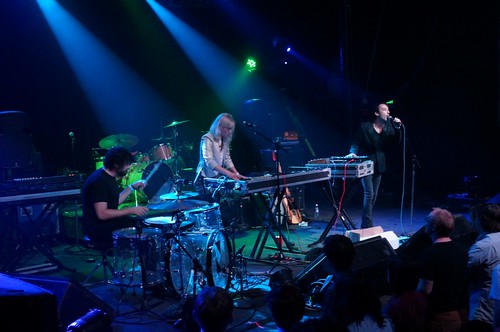

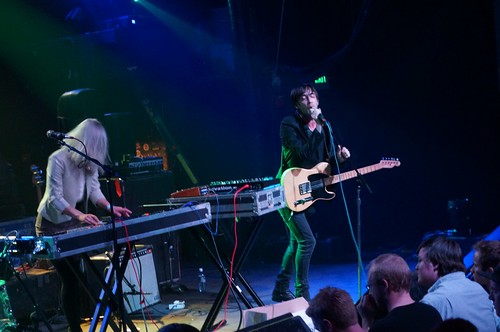
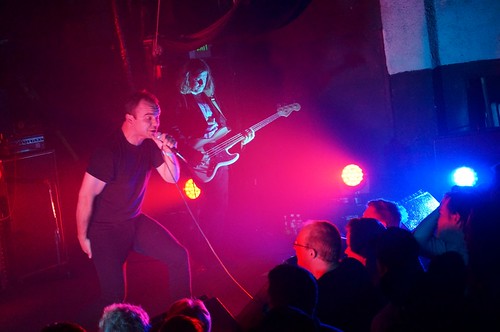
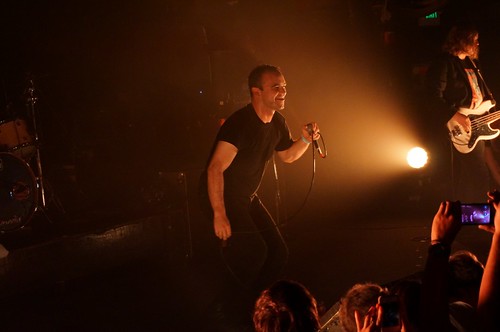
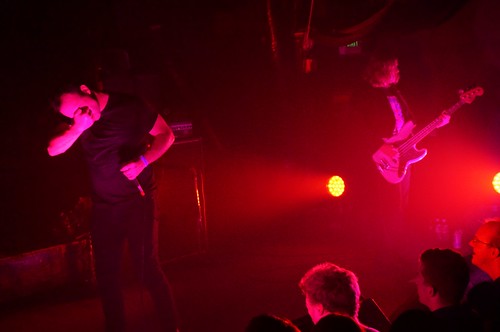
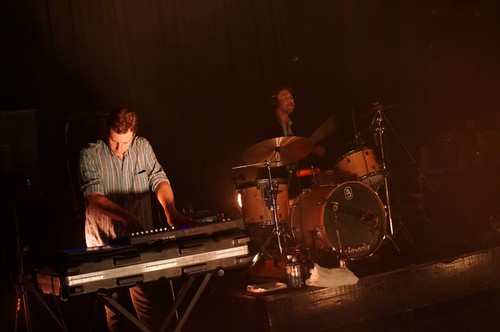
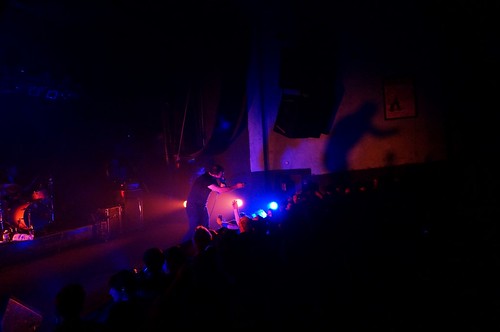

 There’s a moment of cognitive dissonance when the chill funk rhythm of “
There’s a moment of cognitive dissonance when the chill funk rhythm of “ Everybody knows that first impressions are important. With short attention spans, people are quick to categorize and move on. Sometimes, those kneejerk responses are spot-on and sometimes they miss the mark. Either way, there’s rarely a chance to reset expectations after that initial impact. On Cut Yourself Free, guitarist
Everybody knows that first impressions are important. With short attention spans, people are quick to categorize and move on. Sometimes, those kneejerk responses are spot-on and sometimes they miss the mark. Either way, there’s rarely a chance to reset expectations after that initial impact. On Cut Yourself Free, guitarist  Nobody wants to be typecast. After a band has a couple of albums
under their belt, it’s appropriate for them to develop and try new
ideas. If the changes are too big or sudden, they may alienate some of
their original fans, but an evolving artistic vision is vital for
creating fresh inspiration. Dylan went electric, Wilco abandoned their
Americana roots and Radiohead drifted into abstract electronic sounds.
Each one challenged their audience to follow as they reframed their
music. So, kudos to
Nobody wants to be typecast. After a band has a couple of albums
under their belt, it’s appropriate for them to develop and try new
ideas. If the changes are too big or sudden, they may alienate some of
their original fans, but an evolving artistic vision is vital for
creating fresh inspiration. Dylan went electric, Wilco abandoned their
Americana roots and Radiohead drifted into abstract electronic sounds.
Each one challenged their audience to follow as they reframed their
music. So, kudos to  Creepy torment, dark shadows, and Gothic echoes fill
Creepy torment, dark shadows, and Gothic echoes fill  Perfect pop is all about plasticity. That's why so many pop acts are almost interchangeable. Every now and then a fresh flavor catches the market and creates a new star, but other acts soon coopt the pattern and restore balance to the pop arms race. Many bands last for a while and then either fade into obscurity or transform themselves into a unique voice.
Perfect pop is all about plasticity. That's why so many pop acts are almost interchangeable. Every now and then a fresh flavor catches the market and creates a new star, but other acts soon coopt the pattern and restore balance to the pop arms race. Many bands last for a while and then either fade into obscurity or transform themselves into a unique voice. 